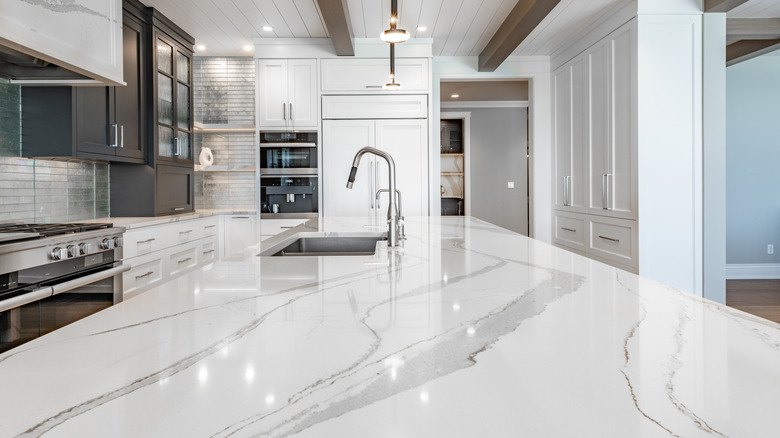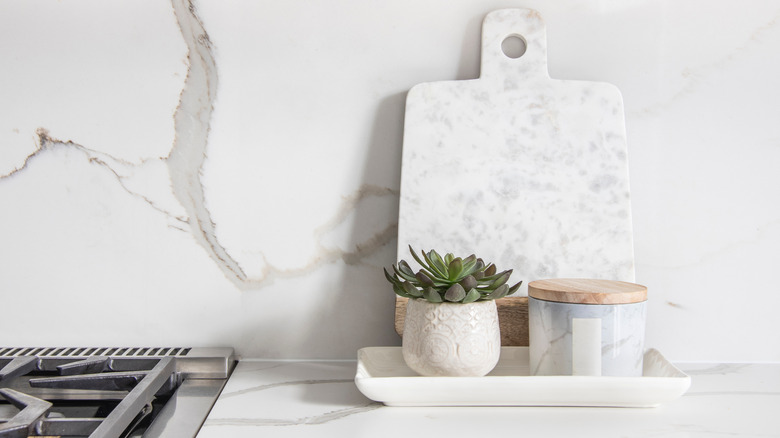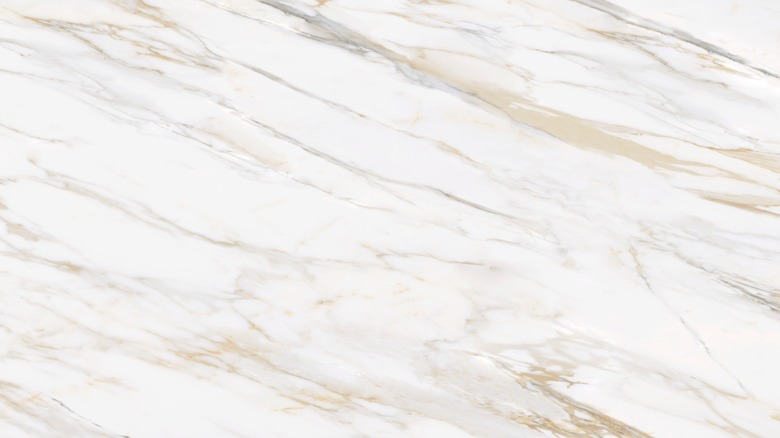Quartz Countertops Vs. Quartzite Countertops: What's The Difference?
When it comes to contemporary countertop choices, many interior designers and home decorators are turning to materials like quartz and quartzite. These high-end selections are valued for their beauty in modern kitchens and bathrooms since they have eye-catching patterns on their surfaces and come in various color options. Each type is also very adaptable in terms of matching them to various kitchen styles and cabinetry colors, which means either one can look great with light or dark color schemes.
But even though the names quartz and quartzite sound similar, they're very distinctive materials manufactured using decidedly different processes. On top of that, only one has anything to do with the mineral quartz. They also have some pros and cons regarding durability; one is more expensive, and the other handles stains and water damage better. Examining the differences between the two might help you decide the best option for your home.
What are quartz countertops?
Even though the name quartz might imply this material is made purely of stone, that's not the case. This type of surface used in kitchen and bathroom countertops is a composite of 90% pulverized quartz mixed with resins and coloring, per MSI. Quartz countertops also have patterns artificially added to the surface to make them look more like natural stone. Now that you know what they're made of, you might wonder what makes quartz countertops desirable.
Beyond their good looks, these countertops are known for ease of care. They're durable since only a few minerals are harder than quartz on Mohs' Hardness Scale. This makes counters made of quartz much more resistant to scratches and stains than marble or granite (via MSI). Quartz countertops are also impervious to water, so they don't have to be sealed like natural materials. One thing to do promptly is to wipe up spills to avoid staining. Beyond that, you can clean them using gentle cleaner and a soft cloth and go on about your business.
How do quartzite countertops differ?
As counterintuitive as it might seem, quartzite countertops are made from sandstone that has been hardened over time by heat and pressure. So, it is a natural stone excavated from the ground in slabs, but it's not made of quartz. In terms of hardness, quartzite is very similar to quartz on Mohs' Hardness Scale, so it is comparably durable in that regard. The patterns on the surface of quartzite look more like those associated with marble compared to the lines artificially applied to quartz countertops. The etching that occurs when marble and granite are exposed to acidic spills is not a problem with quartzite, though, so that's another plus.
However, this type of countertop will need to be sealed occasionally to thwart water damage and stains. Quartzite is also a porous natural stone, so it can be more challenging to install. In addition, quartzite countertops are more expensive than quartz. That said, if you prefer the look of true natural stone, you might still opt for quartzite. If you want an exceptionally durable option that's more budget-friendly, then quartz can be the way to go.


